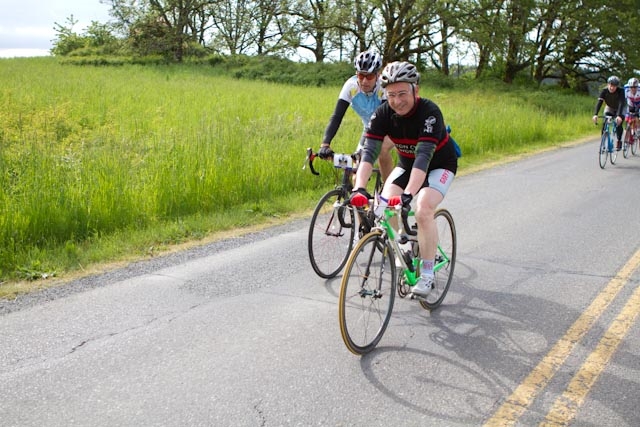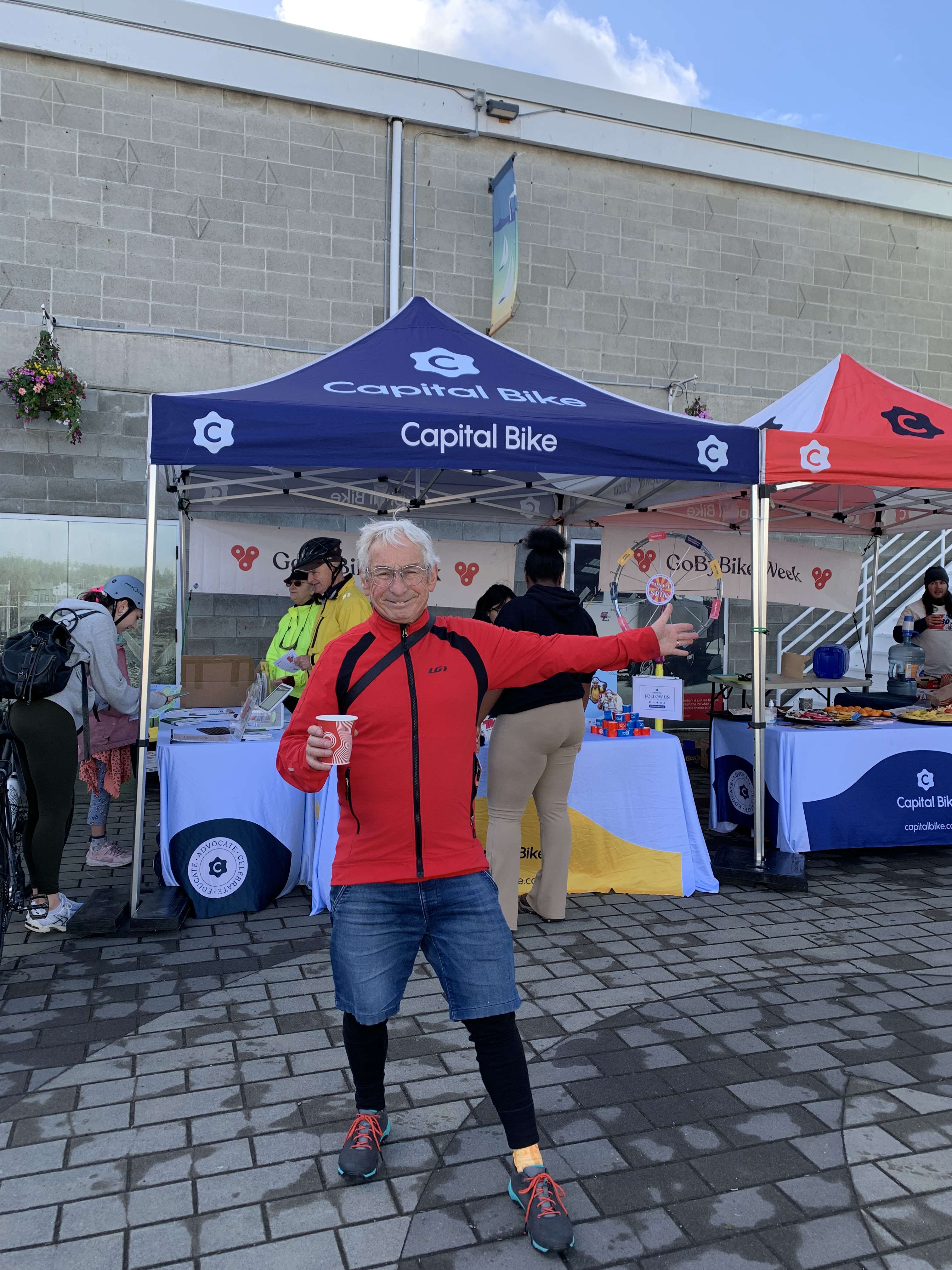Transplant recipients, living donors and donor family members from across the country will be gathering in Ottawa at the beginning of August for the biennial
Canadian Transplant Games. One of 14 athletes from B.C. competing at the Games, including recipients and living donors, is John Luton, a liver transplant recipient and avid cyclist. This will be the 69-year-old Victoria man’s first Transplant Games.
John has worked as a transportation consultant, community advocate and city councillor, and is currently the constituency advisor to MLA Lana Popham, Minister of Tourism, Arts, Culture and Sport.
About seven years ago, I was out power washing the driveway, and my neighbour’s boyfriend came out and said, “What happened to your legs? I thought cyclists were supposed to have muscly legs!”
I looked down and realized my legs were like tree trunks. I went to the doctor and initial blood tests showed my liver enzymes weren’t good. From there, after a lot of additional tests and appointments over several months, I found out I had nonalcoholic steatohepatitis (NASH) (a condition in which your liver builds up excess fatty deposits).
I was sent to the liver transplant program at Vancouver General Hospital (VGH), and initially they thought I’d have many more years before needing a transplant. But after a staph infection that landed me in the hospital, my liver was failing fast and I got listed for a transplant.
About six weeks later in early 2018, I received my transplant. I was in the hospital for a month and had several infections which led to two more operations. After I got out of the hospital, I had to stay in Vancouver for another couple of months, but I got a ‘day pass’ so I could go back to Victoria to attend a special event. While on city council in Victoria (2008-2011), I worked to ensure the new Johnson Street bridge would have good cycling infrastructure. The bridge opened at the end of March 2018 and I really wanted to be there.
The one frustrating thing about recovery was that I could not take transit or ride my bike to and from hospital appointments because I had to avoid crowds and germs. My team told me I could get back on the bike at three months post-transplant. I may have cheated by a couple of days but it was Bike to Work Week, and as one of the originators of the event, I wasn’t going to miss it.
I started riding my wife’s e-bike for a few weeks before getting back on my bike, and I have never really looked back...except for the occasional crash!

I have been a cyclist since high school and have been mostly transporting myself by bike for 50 years. My wife owns a car but I have never owned a car. I was even riding right up until my transplant...I rode my bike to work on a Friday and had a transplant on the Sunday.
Since I got my new liver six years ago, I am fast approaching 40,000 kilometres on my bike, including 6000 kilometres so far this year.
I think one of my doctors mentioned the Games to me, and a former colleague who also received a transplant also mentioned it to me. I also used to live in Ottawa and still have family there, so I thought I could go to the Games and meet some of the other people in the transplant community.
I also want to bring people hope and show that just because you are built of secondhand parts doesn’t mean you are down and out. It’s a good message to send to people that sometimes you are as healthy as you want to be. If you work at it, you can have a long and productive life.
Also, I want to remind people to register as an organ donor! Those waitlists can be long. I was lucky that my wait was so short.
I am competing in two cycling events at the Games, a 5 kilometre time trial and a 20 kilometre criterium. They are actually too short for my liking! A week after I get back from Ottawa, I am doing the 100 kilometre distance in the Tour de Victoria.
 I’m impatient to keep moving. If you are on a bike, it’s transportation, it’s exploration. It opens up the world in a way that nobody else understands. I’ve done many bike tours around the world, including Mexico, U.S., Jamaica, Ecuador, across B.C., Quebec, PEI. In those small villages in Mexico, you aren’t an ‘invader’ or a ‘gringo,’ you are like the locals because you are on a bike. The bicycle is the most liberating form of transportation you can imagine.
I’m impatient to keep moving. If you are on a bike, it’s transportation, it’s exploration. It opens up the world in a way that nobody else understands. I’ve done many bike tours around the world, including Mexico, U.S., Jamaica, Ecuador, across B.C., Quebec, PEI. In those small villages in Mexico, you aren’t an ‘invader’ or a ‘gringo,’ you are like the locals because you are on a bike. The bicycle is the most liberating form of transportation you can imagine.
I want to tell them thank you so much. I wrote a letter to my donor family several years ago now because I wanted them to know I’m taking very good care of their gift. I feel that I was given a second chance, and I should use it wisely. They would not imagine how much extra life that donation has given me. Actually, I could say they have given me 40,000 extra kilometres...and counting!

